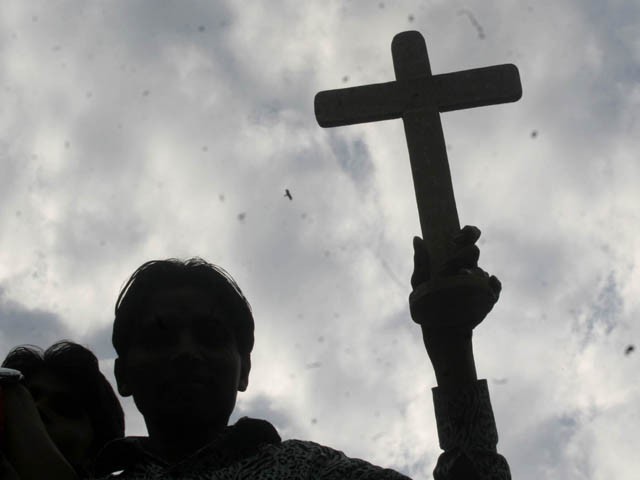
The onset of fasting is marked by Ash Wednesday, which signifies humility and man's worth as nothing more than dust. After the morning mass in Church, devotees gather before the priest, who blesses them and marks a cross of ash on their foreheads. "'You are ash and you will return as ash' is often recited while observing the practice," explained Father Saleem of the St Philips Catholic Church and an academic at the National Catholic Institute of Theology. "It reminds us that everything in this world will meet its end one day, including humans," he said.
Interfaith harmony: Divided in life, united in death
What is ash?
Ash is prepared every year in churches and by sisters who also sell them in their shops, he elaborated. These ashes are usually dried twigs and leaves of palm trees stored from the previous year's Palm Sunday, which marks Jesus' return to Jerusalem, and is commemorated whilst holding palm fronds and crosses. "Previous year's palm leaves and twigs are used for two reasons. Firstly, they are blessed for having already been used in the service and second because fresh leaves and twigs tend to have moisture in them," explained Father Bernard Younus, also of St Philips Parish Church. "It's easier to burn the dried ones," he said. Prepared in Churches, they are collected, left to cool and blessed by the priest who marks a cross of ash on people's foreheads, he added.

Delving into the history of practice, Father Saleem said that the tradition began in the 5th or 6th century. "In ancient times, the ash used to be marked on the heads. From animals to humans, whole sultanates [states] would practice the ritual," he said.
Valentine's Day celebrations banned in Islamabad?
"It's a means to bring one closer to God and renews one's connection with Him, which is weakened due to our sins," he added.
What follows?
A 40-day fasting period follows until Easter, in which fasts are observed from one sunset to another, except on Sundays. Although mass is held in all churches, not all Christians follow the tradition of Ash Wednesday. "It is largely a Catholic concept," said Reverend Shahid Sabir of the All Saints Church.
"Protestants fast but do not mark their foreheads with ash after the service," he explained. The forty-day period is often honoured by special prayers inside homes where people gather, collectively pray and break their fasts, he said.
"Simply, fasts are kept for 24 hours. During this time we consume nothing and try to observe it on a spiritual level," added Nasir Raza, an activist and a practicing member of the church.
Published in The Express Tribune, February 11th, 2016.

















COMMENTS (1)
Comments are moderated and generally will be posted if they are on-topic and not abusive.
For more information, please see our Comments FAQ